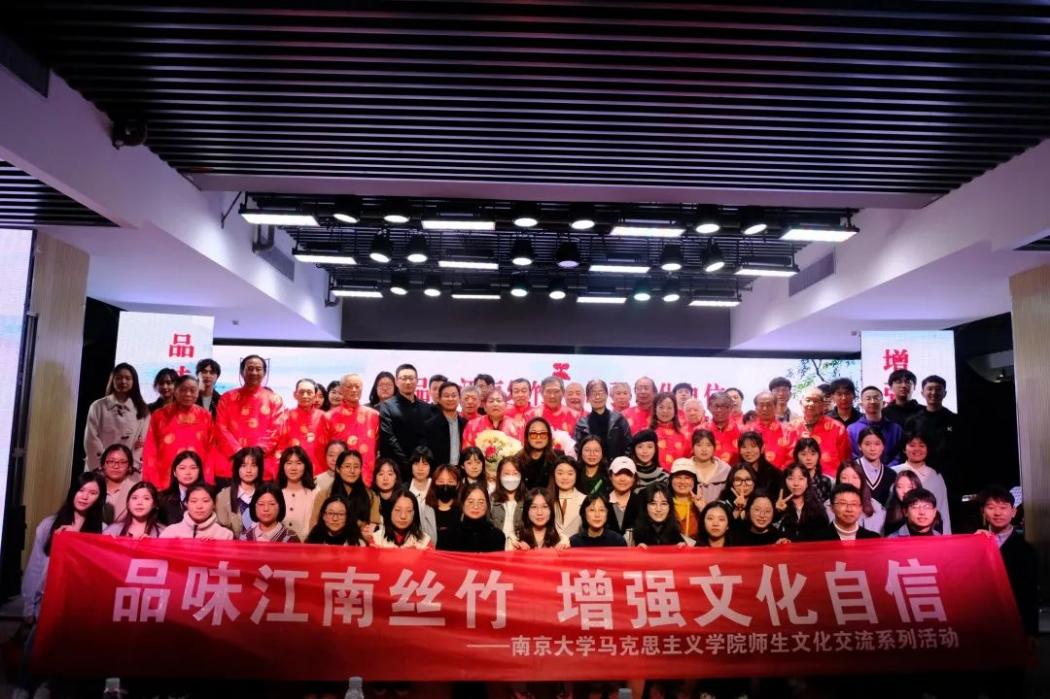“Water ripples over Qinhuai River. Jiangnan Sizhu chants archaic music.” More than 80 undergraduates, postgraduate and doctoral students from the School of Marxism at Nanjing University visited the Qinhuai Intangible Cultural Heritage Museum and attended a concert for Jiangnan Sizhu (Nanjing’s intangible cultural heritage) on the afternoon of March 12. The activity, planned and led by Prof. Bao Qinggang and Prof. Dai Xuehong, two undergraduate mentors of Class 2022 from the School of Marxism, aimed at enabling students to better understand and thoroughly implement the guiding principles of the 20th National Congress of the CPC, to enhance the quality of aesthetic education, and to build up firm confidence in Chinese culture. The group visited the museum and obtained an understanding of Nanjing’s intangible cultural heritage. The performing group in the concert was the Jiangnan Sizhu Ensemble of Nanjing Music Society, one of China’s top four music societies. The lead performers were Mr. Gan Fan, a famous Erhu player and the son of Chinese folk maestro Gan Tao, and Mr. Li Jiazhen, a well-known Yangqin player. Mr. Jiang Nan, deputy curator of the Qinhuai Intangible Cultural Heritage Museum, attended the activity.
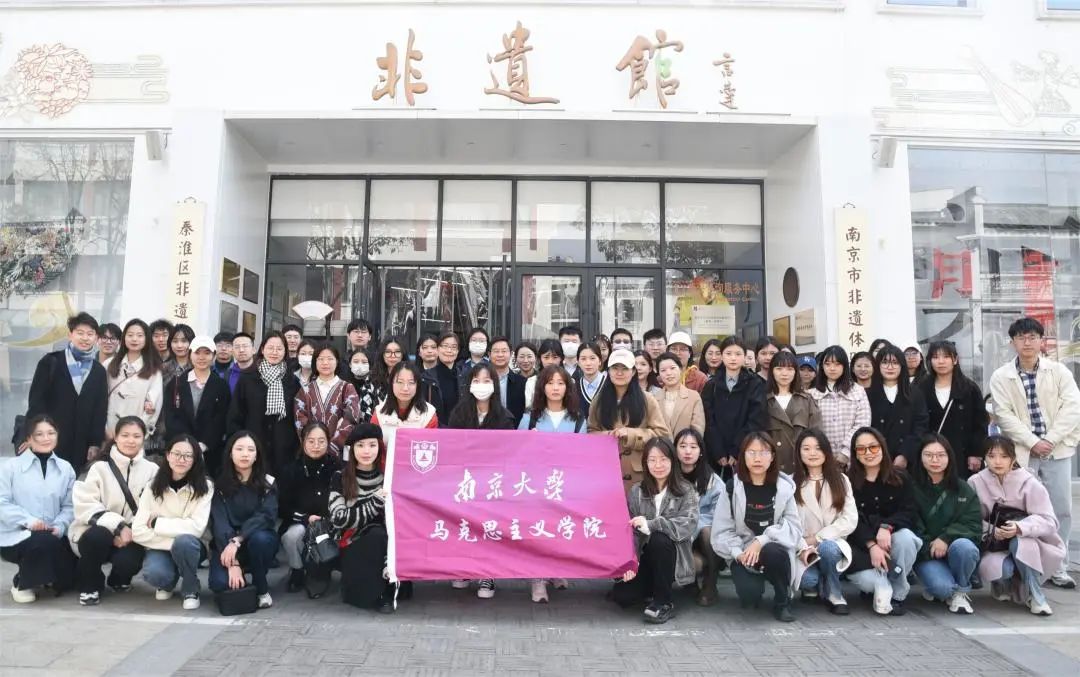
Faculty and students from the School of Marxism in front of the Qinhuai Intangible Cultural Heritage Museum
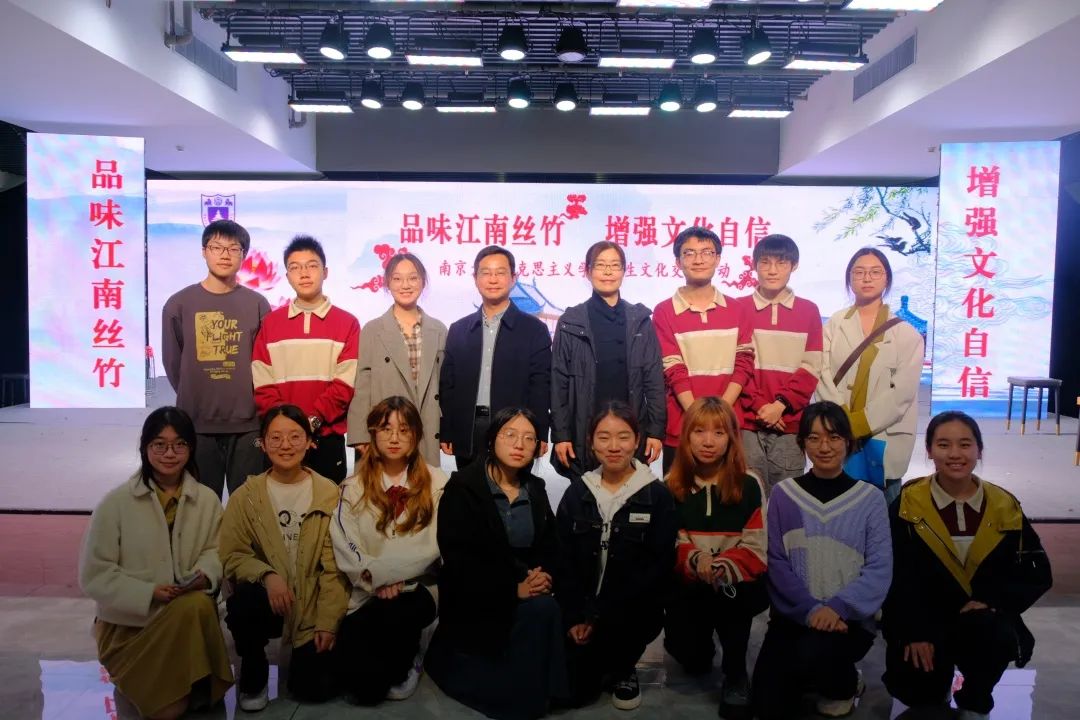
The undergraduate mentors, Bao Qinggang and Dai Xuehong, and the undergraduates of the Class of 2022 from the School of Marxism
The Jiangnan Sizhu Ensemble, composed of more than 20 players, presented a feast for the ears in this concert. The concert program consisted of classical music (A Moonlit Night on Spring River), Jiangnan Sizhu masterpieces with lively melodies (San Liu, Purple Bamboo, and Procession), and recently composed music (Strolling on the Su Causeway and Dance Music for Picking Tea Leaves). The audiences were intoxicated with the light and rhythmic music and subtly orchestrated performance as if they stepped into a picturesque water town of South China. The appreciation of Jiangnan Sizhu has not only helped cultivate personality traits of the audience but also deepened their understanding of classical Chinese music and the importance of inheriting intangible cultural heritage.
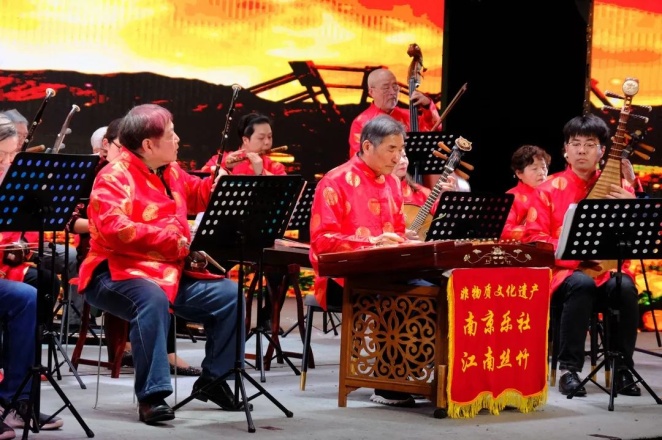
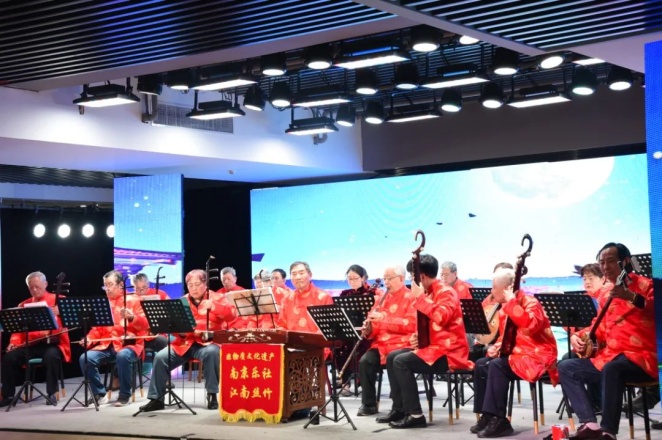
Jiangnan Sizhu Ensemble of Nanjing Music Society
After the performance, Prof. Bao, on behalf of the School of Marxism, gave a thank-you speech. He regarded this Jiangnan Sizhu concert as an exquisite and incredible demonstration of rich and profound Chinese folk music and attributed the success of this concert to the players’ impressive skills. He quoted Tengwang Ge Xu (Preface to the Prince Teng’s Pavilion), “The four beauties of life—wonderful day, beautiful scenery, great mood, and happy things—are all present. A hospitable host and honorable guests are hard to get, but we have got them here.” Bao believed that the scenery of the Qinhuai River and the delight of Jiangnan Sizhu on this lovely spring day is a feast of intangible cultural heritage, which enriches the lives of college students.
Delivering Speech
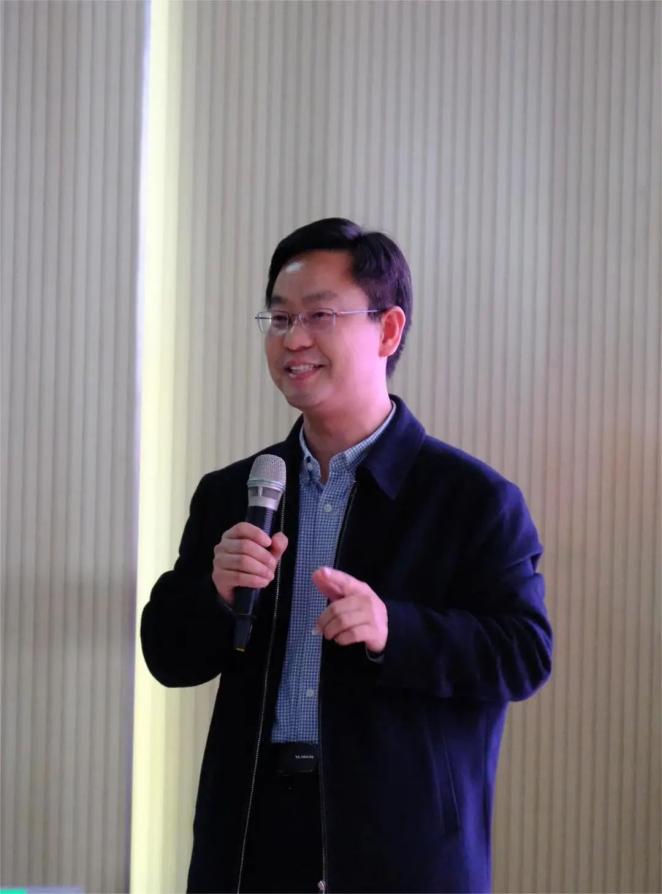
Prof. Bao Qinggang delivered a thank-you speech.
In addition, Prof. Bao Qinggang and Prof. Dai Xuehong also expressed their gratitude to the Jiangnan Sizhu Ensemble of Nanjing Music Society and the organizer, Qinhuai Intangible Cultural Heritage Museum, by presenting gifts.
Presenting Gifts

Expressing Gratitude
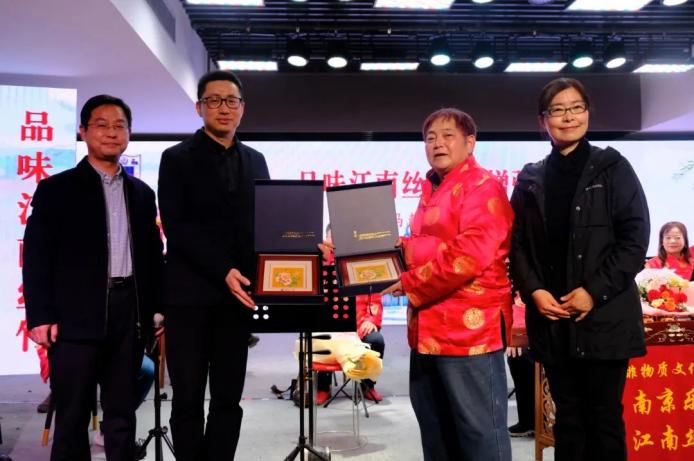
Prof. Bao Qinggang and Prof. Dai Xuehong presented gifts to the Jiangnan Sizhu Ensemble of Nanjing Music Society and the Qinhuai Intangible Cultural Heritage Museum.
Following the concert, the mentors and students embarked on a journey to explore other exhibitions at the Qinhuai Intangible Cultural Heritage Museum, delving deeper into Nanjing’s rich cultural heritage.
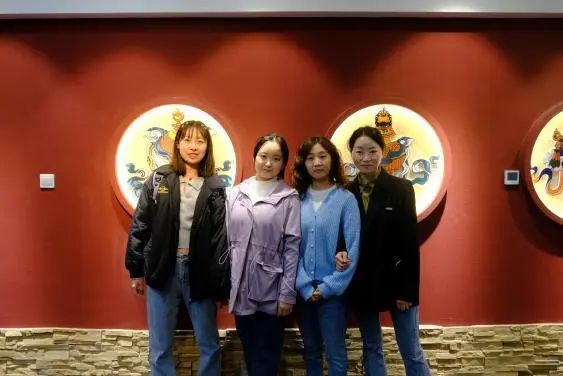
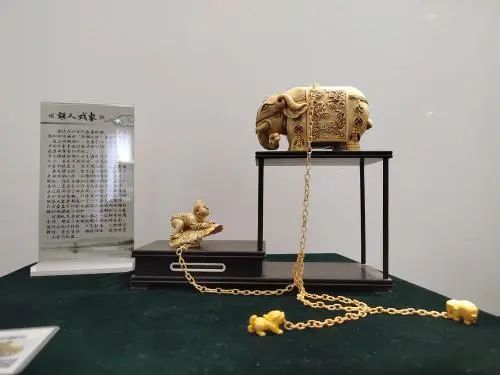
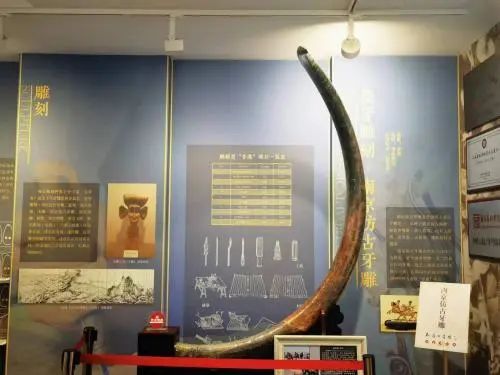
This cultural exchange was well received by the students at the School of Marxism. The participants were exposed to the magnetism of intangible cultural heritage, Jiangnan Sizhu, and gained a deeper appreciation for the essence of traditional Chinese culture. They also recognized the importance and urgency of preserving and passing down Chinese intangible cultural heritage. In this new era, the young scholars and faculty members at the School of Marxism will undoubtedly make remarkable progress in promoting and inheriting traditional Chinese culture with more ardent and motivated efforts.
